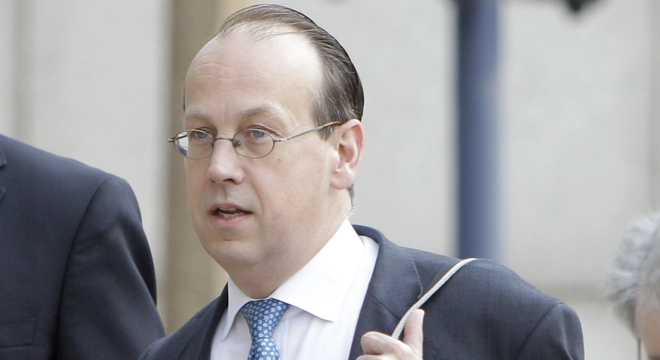Paul Clement, the lawyer for the Republican-led states challenging “Obamacare,” played a key role years ago, when representing the Bush White House, in expanding the same federal power that’s now the constitutional basis for the health care reform law. Today his clients have different interests, and the 180-degree flip in his reasoning underscores an inconsistency in Republican views of the Constitution.
As the Bush administration’s solicitor general in 2004, Clement argued before the Supreme Court in Gonzales v. Raich that Congress’s power to regulate interstate commerce is broad enough to override state laws permitting medical marijuana patients to grow cannabis for personal consumption. Notably, two of the justices he won over in the the 6-3 decision were Anthony Kennedy and Antonin Scalia.
The crux of Clement’s argument: The Constitution grants the federal government sweeping authority to regulate activities that have a connection to the interstate market and are relevant to a broader regulatory scheme.
“This court, in a series of cases, including Darby, Wickard, Wirtz and Perez, has made clear that the relevant focal point for analysis is not the individual plaintiff’s activities and whether they have a substantial effect on interstate commerce, but whether the class of activities that Congress has decided to regulate has such a substantial effect,” Clement said in the November 2004 oral argument. “And, in this case, there’s no question that the overall production, distribution and possession of marijuana and other Schedule I substances has a profound effect on interstate commerce.”
The Obama administration’s argument in “Obamacare” is that letting people go without health insurance has no less substantial an effect on interstate commerce than forbidding a small group of licensed patients to grow marijuana for non-commercial use. Clement, working within a narrow framework at the time, argued that the court should take into account even the peripheral dangers of allowing people to grow marijuana, which he said “poses a real challenge to the statutory regime” in question.
He told the justices that the court has historically granted great deference to economic regulations passed by Congress, which is a key part of the Obama White House’s legal case today. Referring to an earlier decision, Clement argued, “What this court said is, ‘Even though it was focused on what was going to be, both in that case and generally, an interstate activity, Congress did not have to just look at the particular plaintiff’s effect on interstate commerce, but, rather, the effect of the entire class of activities.'”
Timothy S. Jost, a law professor at Washington and Lee University, told TPM the Raich and “Obamacare” cases reflect an inconsistency in the GOP’s interpretation of the Constitution, and he suspected it may be because of political ideology.
“Politically someone can support heavy regulation of illicit drugs and be opposed to regulation of the health care sector without feeling the need to be ideologically consistent,” Jost said. “But if the federal government doesn’t have the power to require people to buy health insurance, then it should have the same scope of powers when it’s regulating illicit drugs.”
In 2004, when Clement was probed about two modern precedents that narrowed the scope of Commerce Clause power, he argued that U.S. v. Lopez and U.S. v. Morrison involved laws that were “non-economic” and “not essential to the effectiveness of an overall regulatory scheme.” His rationale could easily apply to regulation of the health insurance market.
TPM reached out to Clement for this article but he didn’t respond by press time.
Of course, regulating marijuana and health care are not the same thing. Clement argued last Tuesday that that the Affordable Care Act represents an “unprecedented effort by Congress to compel individuals to enter commerce” and one without a “limiting principle.” But when the justices probed him on the unprecedented aspects of the law he was defending in 2004, Clement urged the court not to look for reasons to restrict federal power.
“I mean, any case can be distinguished on the facts, of course,” he said. “I’m taking the rationale that this court accepted in Wickard, and I’m applying it to a different regulatory regime.”
Clement won the case, and the Obama administration proceeded to cite Raich no fewer than 10 times in its health care brief as a precedent that justifies the law.
The turnaround is noteworthy not because Clement has today adopted different reasoning — it’s his job to adapt — but because both times he’s defending the lions of the Republican establishment. The shift ultimately exposes the inconsistencies in the GOP’s views on federal authority to regulate interstate commerce, whether it be over political ideology or partisan control of the White House.
At the time, Clement even told the court that if it ruled against the government, “It would also, I think, frustrate Congress’s goal in promoting health.”






